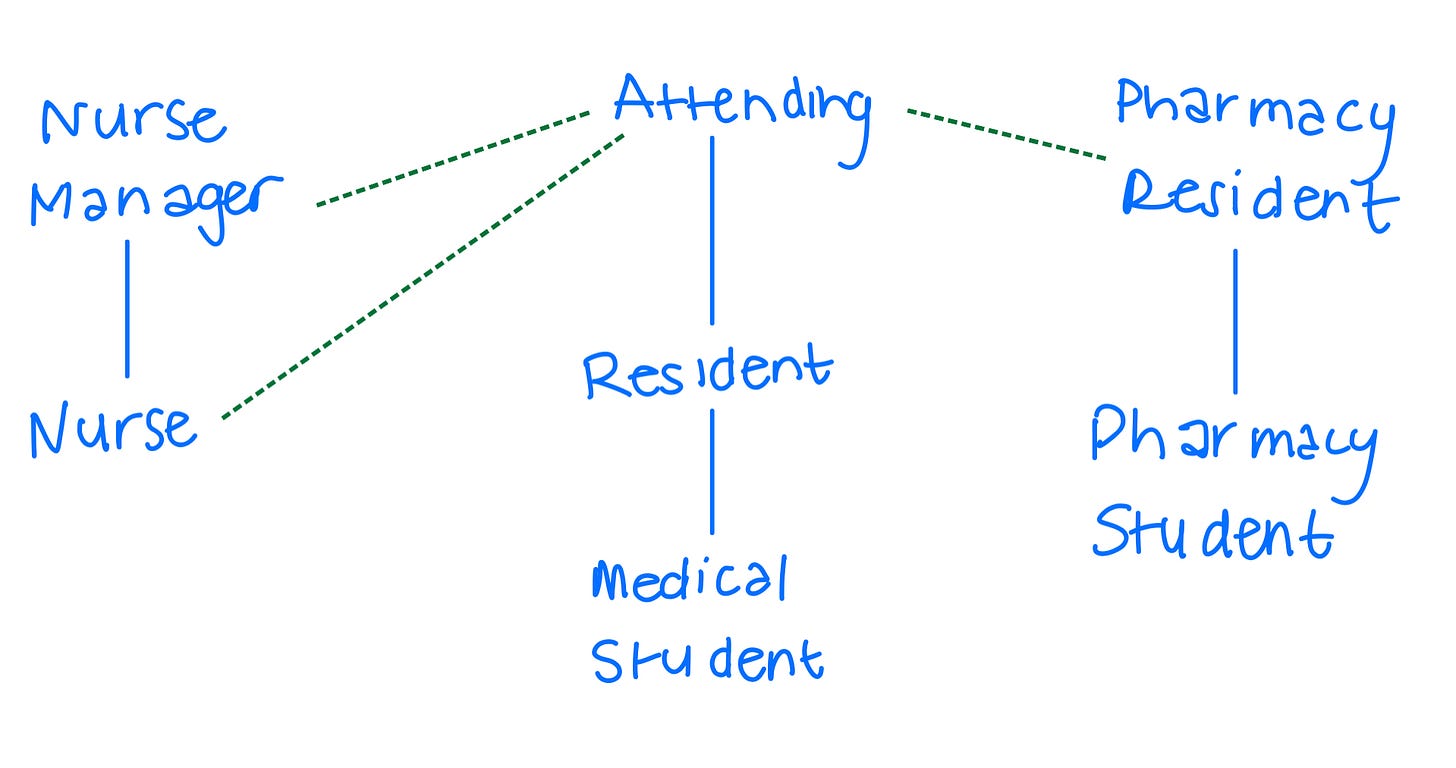Inputs #02 9/27/20: The Abdaal Brothers, Building an Audience, and Habits with James Clear
How do you like the click-baity title?
Welcome to issue number two of Inputs - a weekly email where I curate some of the best things I’ve read, listened to, or seen in the past week.
A Quick Update
I started my internal medicine rotation this past week and am having a blast. I finally feel like I’m “practicing medicine” since it requires me to take everything I learned in the first two years of medical school and use that knowledge to help treat patients. (For those who don’t know, Internal Medicine is basically the general hospital + some hospital specialties - so what you think about when you think of a doctor in a hospital).
Something I found interesting is the team structure. There are medical students, residents, and attending physicians which is a hierarchy but we also have pharmacy students and pharmacy residents, as well as nurses. There is a kind of unsaid hierarchy (attending physician at the top) but it is fascinating to see team dynamics and how people work together. I’ll probably write about this at some point.

Since I’ve moved mostly to weekly curation instead of longer essays, I’d love to stay in touch with you where I’m most active - Twitter! You can find me @akiffpremjee. On to the inputs from this week!
The Abdaal Brothers - Not Overthinking
I’ve started going through the archives of this podcast because I like the banter between the Abdaal brothers. Ali is big on YouTube and Taimur is working on his own startup. Two episodes stuck out to me this week:
Why Do We Seek Permission: This was an older episode where the brothers discuss a classic question that anyone creating on the internet has: Am I qualified enough to be posting about this? It essentially goes through why creators feel a sense of imposter syndrome and worry and think that they may not have the credibility to comment about a given topic because they are not the “expert” on that topic. Taimur answers the question well by framing it as a permission issue based on labels that society puts on different individuals.
Book Discussion - The 4-Hour Work Week: This one is all about talking through Ali’s highlights from The 4-Hour Work Week - a book he says changed his life. It’s interesting to go through because it seems that the reasons people want to work less and invest in passive income now are so much more different from what they were when Tim Ferris wrote the book (i.e. less focus on living on beaches and being remote and more on being able to do what you’re passionate about and find a community you can live long term in).
Creation and Building an Audience
Since this is something that I’m working on, each week I try to find some good resources for being more creative and growing an audience. Recently, Nathan Barry and the a16z Podcast have been great places for this type of content.
Consistently Deliver Value to Your Audience with Brennan Dunn - The Nathan Barry Show: Nathan Barry is the founder of ConvertKit and his show dives into different topics about creating online, growing an audience, and monetization. This episode with Brennan Dunn talks about building online courses and then how Brennan has gone about creating funnels and email campaigns to sell these courses over time. It’s far from where I am today but his process and how he has built a machine that pumps out all the work for him is incredible.
The New Fan Club: Creators, Fans, and the Power of Markets: A fascinating episode on the a16z Podcast about creators and crypto. I had never thought about how crypto currency could be tied to an individual creator but the argument they make is that fans should be able to “invest” in creators early and profit when a creator becomes big. Startups attract early employees via stock options today in this exact way and this is model should be translatable to the Creator Economy as well.
Habits and the Limitations of Systems
Habits, Identity, and Mental Models: Brandon Zhang had James Clear on his podcast for this week’s episode and boy I took a lot of notes on this one. There is of course talk about the compounding effects of habit and how things that you do become more valuable over time in ways that you may not expect, but my biggest takeaway was how important it is to think about the generalizability of any system that you build and findings its limitations. This is a key exercise so you where holes exist and things may fall through the cracks. James says that this is an exceptionally important skill to have, especially as a writer, so that you can identify where your argument fails and to acknowledge that ahead of time.
That’s all for this week! Thanks for checking out Inputs and I hope you found them interesting. I’m working on an essay about Why SQL is a skill that everyone should learn and also in the process of editing the Digital Studios tour with Andy Henson. If you liked what you read, please subscribe down below. I’d love to share my work with you.

